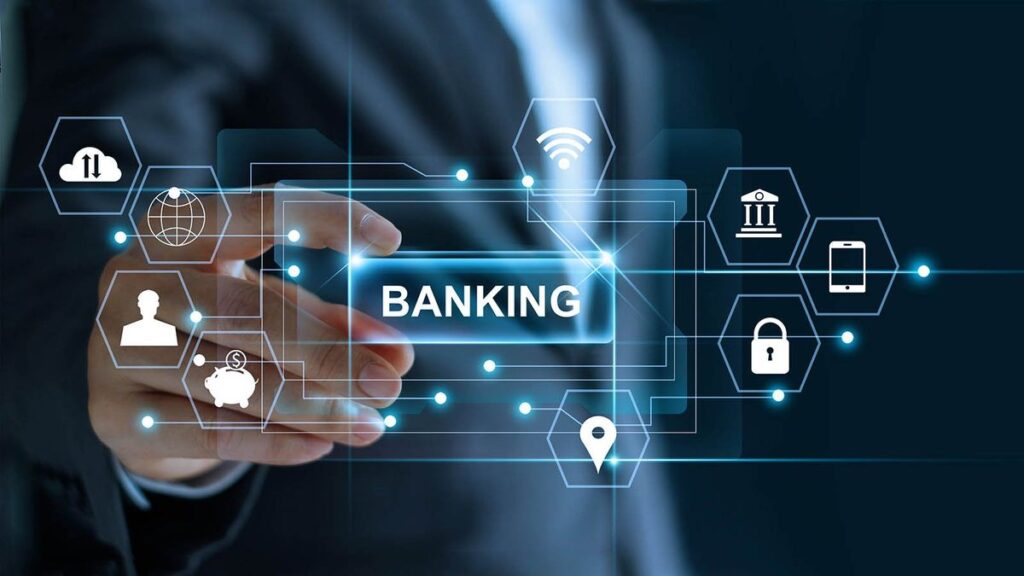Understanding AI in Banking and Finance
What is AI in banking and finance? Artificial intelligence represents sophisticated computational systems that analyze vast financial datasets, recognize patterns, automate complex processes, and make intelligent decisions with minimal human intervention. The role of AI in banking and finance extends from customer-facing chatbots answering routine inquiries to backend algorithms detecting fraudulent transactions, assessing credit risk, optimizing investment portfolios, and personalizing financial recommendations.
Modern financial institutions leverage machine learning, natural language processing, computer vision, and predictive analytics to enhance operational efficiency, improve customer experiences, reduce costs, and mitigate risks. AI transformation in banking fundamentally reshapes how banks operate, compete, and deliver value to customers in increasingly digital-first markets.
Understanding how AI is changing finance requires examining specific applications where intelligent systems deliver measurable advantages over traditional approaches. From instant loan approvals to algorithmic trading executing millions of transactions per second, AI capabilities redefine what’s possible in financial services.
Industry Intelligence and Market Data
The global AI in banking market reached $12.4 billion in 2023 and projects to exceed $64.3 billion by 2030, representing a compound annual growth rate of 32.6%, according to Grand View Research’s “Artificial Intelligence in Banking Market Analysis Report 2024.”
McKinsey’s “The State of AI in Banking 2024” reveals that financial institutions implementing AI technologies achieve 15-20% cost reductions in operations while simultaneously improving customer satisfaction scores by 25-35%. These dual benefits—enhanced efficiency and superior experiences—explain accelerating AI adoption across the banking sector.
Deloitte’s “Banking and Capital Markets Outlook 2024” identifies AI as the primary technology investment priority, with 87% of banking executives increasing AI budgets despite broader economic uncertainties. This confidence stems from proven ROI metrics demonstrating rapid payback periods averaging 18-24 months for AI implementations.
Research from the World Economic Forum’s “Future of Financial Services” initiative indicates that AI-powered banking services process customer requests 40% faster while reducing error rates by 60% compared to traditional systems. These improvements directly translate to competitive advantages in customer acquisition and retention.
How AI Is Used in Banks Today
Intelligent Customer Service and Support
Banks deploy conversational AI systems handling 70-80% of routine customer inquiries without human intervention. These intelligent chatbots provide instant account information, process simple transactions, explain product features, and troubleshoot common issues 24/7 across multiple languages.
iOS AI in banking and finance services and Android AI in banking and finance services deliver consistent experiences across mobile platforms, ensuring customers access intelligent assistance regardless of device preference. Natural language understanding enables systems to comprehend complex questions, interpret context, and provide accurate, helpful responses that match human service quality.
Fraud Detection and Prevention
Machine learning algorithms analyze transaction patterns in real-time, identifying suspicious activities with 95% accuracy while reducing false positive alerts by 70%. AI systems recognize subtle anomalies indicating fraud attempts—unusual spending patterns, atypical transaction locations, or behavioral inconsistencies suggesting account compromise.
These intelligent security systems learn from new fraud techniques continuously, adapting defenses faster than rule-based systems dependent on manual updates. Banks implementing AI fraud detection report 40-50% reductions in fraud losses while improving legitimate transaction approval rates.
Credit Risk Assessment and Lending Decisions
AI transforms credit underwriting from manual, time-consuming processes requiring days into automated decisions delivered in seconds. Machine learning models analyze hundreds of data points—traditional credit history, transaction patterns, employment stability, social indicators, and alternative data sources—providing comprehensive risk assessments beyond conventional scoring methods.
This intelligent underwriting expands financial inclusion by accurately assessing creditworthiness for individuals lacking traditional credit histories, enabling banks to serve previously underbanked populations while managing risk effectively.
Personalized Financial Recommendations
AI-powered recommendation engines analyze customer financial behaviors, life events, transaction patterns, and stated goals to suggest relevant products and services at optimal moments. This personalization increases product adoption rates by 35-40% compared to generic marketing approaches while enhancing customer satisfaction through genuinely helpful guidance.

Key Use Cases of AI in Banking
Digital Identity Verification
Biometric authentication using facial recognition, voice analysis, and behavioral biometrics replaces traditional password systems with more secure, convenient verification methods. AI systems detect spoofing attempts, deepfake attacks, and identity theft with 99% accuracy, protecting customer accounts while streamlining authentication experiences.
Process Automation and Efficiency
Robotic process automation powered by AI handles repetitive tasks including document processing, data entry, compliance reporting, and account reconciliation. Banks implementing intelligent automation reduce operational costs by 30-45% while reallocating human employees to higher-value advisory and relationship management roles.
Risk Management and Compliance
AI continuously monitors transactions, communications, and market activities for regulatory compliance violations, market manipulation, insider trading, and money laundering indicators. Natural language processing analyzes contracts, policies, and regulatory documents, ensuring institutional compliance with complex, evolving regulations across multiple jurisdictions.
Treasury and Cash Management
Predictive analytics optimize cash positioning, liquidity management, and treasury operations. Machine learning models forecast cash flow requirements, recommend optimal investment strategies, and identify opportunities for working capital optimization, improving institutional financial performance.
Customer Segmentation and Marketing
Advanced clustering algorithms identify distinct customer segments based on behaviors, preferences, life stages, and profitability profiles. This granular segmentation enables hyper-targeted marketing campaigns, personalized product offerings, and differentiated service levels that maximize customer lifetime value.
Use Cases of AI in Finance
Algorithmic Trading and Investment Management
AI-powered trading systems analyze market data, news sentiment, economic indicators, and technical patterns to execute trades at optimal moments. These algorithms process information and react to market changes in microseconds, capitalizing on opportunities impossible for human traders to detect or exploit.
Robo-advisors democratize wealth management by providing algorithm-driven investment advice and portfolio management at a fraction of traditional costs. These platforms serve mass-affluent clients previously unable to access personalized investment guidance, expanding market reach while maintaining high service quality.
Insurance Underwriting and Claims Processing
Machine learning models assess insurance risk with greater accuracy than traditional actuarial methods, enabling more precise pricing and improved profitability. AI-powered claims processing automates damage assessment using computer vision, accelerates approval workflows, and detects fraudulent claims with 85% accuracy.
Financial Planning and Advisory Services
AI assistants analyze client financial situations, goals, time horizons, and risk tolerances to generate comprehensive financial plans. These intelligent systems simulate thousands of scenarios, stress-test strategies against market volatility, and recommend optimal approaches balancing growth potential with risk management.
Market Research and Sentiment Analysis
Natural language processing analyzes news articles, social media, earnings calls, and analyst reports to gauge market sentiment and predict price movements. Investment firms leveraging AI sentiment analysis gain informational advantages enabling superior investment decisions and risk-adjusted returns.
Regulatory Technology (RegTech)
AI-powered compliance platforms automate regulatory reporting, monitor transactions for suspicious activities, ensure data privacy compliance, and adapt to regulatory changes automatically. Financial institutions reduce compliance costs by 40-50% while improving accuracy and reducing regulatory violation risks.
Benefits of AI in Banking Sector
Enhanced Operational Efficiency
AI automation handles routine tasks 10x faster than manual processes while maintaining 99.9% accuracy. This efficiency enables banks to process higher transaction volumes, serve more customers, and launch new products faster—all while reducing operational expenses by 30-45%.
Superior Customer Experiences
Personalized interactions, instant service, proactive recommendations, and 24/7 availability transform customer relationships. Banks implementing AI in banking and finance services report Net Promoter Scores 20-30 points higher than competitors relying on traditional approaches.
Risk Reduction and Enhanced Security
AI advantages in finance industry include superior fraud detection, more accurate credit assessments, better market risk management, and robust cybersecurity defenses. These capabilities protect both financial institutions and customers from evolving threats while enabling confident growth strategies.
Cost Optimization
Intelligent automation, optimized processes, reduced fraud losses, and improved decision-making collectively reduce banking operating costs by 20-35%. These savings can be reinvested in innovation, passed to customers through better rates, or flow directly to profitability improvements.
Competitive Differentiation
AI capabilities create defensible competitive advantages difficult for traditional competitors to replicate without substantial investment. Early AI adopters establish data advantages, algorithmic sophistication, and customer relationships that compound over time, widening competitive gaps.
Financial Inclusion Expansion
AI enables serving previously unprofitable customer segments through automated, scalable services requiring minimal marginal costs. This democratization expands financial access while creating new revenue streams from underserved markets.
AI Transformation in Banking
How AI is changing finance extends beyond individual applications to fundamental business model transformation. Leading banks evolve from product-centric institutions to data-driven platforms delivering personalized financial guidance throughout customer lifecycles.
This transformation requires cultural shifts emphasizing experimentation, technical capability development, data infrastructure investment, and organizational agility. Banks successfully navigating AI transformation develop:
Data-Centric Cultures: Decisions driven by analytics rather than intuition, with widespread data literacy across all organizational levels.
Agile Operating Models: Cross-functional teams rapidly developing and iterating AI solutions in weeks rather than months.
Technology Platforms: Modern cloud-based architectures supporting real-time data processing, machine learning model deployment, and seamless integration across systems.
Ethical AI Frameworks: Governance ensuring fairness, transparency, accountability, and regulatory compliance in algorithmic decision-making.
Talent Ecosystems: Combination of internal capability development and strategic partnerships with specialized AI in banking and finance services providers.
Latest AI Trends in Fintech
Generative AI for Content and Code
Large language models create personalized financial content, generate investment reports, draft customer communications, and even write software code accelerating application development. These capabilities reduce content creation costs by 60-70% while maintaining quality and personalization.
Hyper-Personalization at Scale
Advanced AI creates individualized experiences for millions of customers simultaneously, tailoring interfaces, product recommendations, pricing, and communications to each person’s unique situation, preferences, and needs.
Embedded Finance Integration
AI powers seamless financial services integration into non-financial platforms—e-commerce sites, ride-sharing apps, healthcare platforms—expanding banking reach beyond traditional channels into customers’ daily digital experiences.
Open Banking and API Ecosystems
AI analyzes data from multiple financial institutions through open banking frameworks, providing comprehensive financial insights, optimized recommendations, and automated money management across entire financial relationships.
Voice and Conversational Banking
Natural language interfaces enable customers to check balances, transfer funds, pay bills, and receive financial advice through voice commands, making banking more accessible and convenient, particularly for mobile-first users.
Quantum Computing Preparation
Forward-looking institutions research quantum algorithms for portfolio optimization, risk calculation, and cryptographic security, preparing for transformative computational capabilities emerging over the next decade.
Future of Banking in UAE and Online Banking in UAE
The future of banking in UAE positions the region as a global fintech innovation hub leveraging AI to deliver world-class financial services. UAE financial institutions invest heavily in AI transformation, with major banks allocating 15-20% of IT budgets to artificial intelligence initiatives.
Online banking in UAE increasingly relies on AI-powered features including biometric authentication, intelligent personal financial management tools, predictive spending alerts, and automated savings recommendations. These capabilities align with UAE Vision 2031 objectives promoting digital economy leadership and technological innovation.
Regulatory support from the UAE Central Bank and financial free zones like DIFC and ADGM encourages AI experimentation through regulatory sandboxes, enabling fintech companies to test innovative solutions while ensuring consumer protection and financial stability.
UAE banks partner with best AI fintech app developers in UAE to implement cutting-edge technologies rapidly, leveraging regional expertise in Arabic language processing, Islamic finance AI applications, and culturally relevant user experiences optimized for Middle Eastern markets.
Implementation and Development Costs
Understanding AI Development Cost Banking
AI development cost banking varies dramatically based on solution complexity, data requirements, integration needs, and customization levels. Basic AI chatbots cost $30,000-$60,000 to implement, while comprehensive fraud detection systems require $200,000-$500,000+ investments.
Enterprise-grade AI platforms powering multiple use cases across institutions demand $1-5 million initial investments with ongoing operational costs of 20-30% annually for maintenance, model retraining, and capability expansion.
Cost-Benefit Analysis
Despite substantial initial investments, AI implementations deliver rapid ROI through operational efficiencies, fraud reduction, improved customer retention, and revenue growth. Most banking AI projects achieve payback within 18-24 months, with returns accelerating as systems mature and data volumes grow.
Partnering Considerations
When you hire AI developers for banking in UAE, prioritize partners demonstrating financial services domain expertise, regulatory compliance knowledge, data security capabilities, and proven track records implementing similar solutions. Regional specialists understand local market dynamics, language requirements, and cultural considerations essential for successful deployments.
Working with the best AI fintech app developers in UAE ensures access to talent familiar with UAE regulatory frameworks, Arabic language processing requirements, and regional user experience preferences while benefiting from time zone alignment and cultural understanding.

Frequently Asked Questions
What is AI in banking and finance?
AI in banking and finance refers to intelligent computational systems that analyze financial data, automate processes, make predictions, and deliver personalized services. These technologies include machine learning for pattern recognition, natural language processing for customer interactions, computer vision for document processing, and predictive analytics for risk assessment and decision-making.
What is the role of AI in banking and finance?
The role of AI in banking and finance encompasses enhancing customer experiences through personalization and instant service, improving operational efficiency through automation, strengthening security via fraud detection and risk management, enabling data-driven decision-making, expanding financial inclusion through alternative credit assessment, and creating competitive advantages through innovation.
How is AI used in banks today?
AI is used in banks for intelligent customer service chatbots, real-time fraud detection, automated credit underwriting, personalized product recommendations, biometric authentication, process automation, regulatory compliance monitoring, algorithmic trading, risk management, and customer segmentation for targeted marketing campaigns.
What are the main use cases of AI in banking?
Primary use cases of AI in banking include conversational AI for customer support, fraud detection and prevention, credit risk assessment, digital identity verification, process automation, personalized financial advice, treasury management, compliance monitoring, customer segmentation, and predictive analytics for business intelligence.
What are the benefits of AI in banking sector?
Benefits include 30-45% operational cost reduction, 95% fraud detection accuracy, 70% faster customer service, 35-40% higher product adoption through personalization, improved credit assessment accuracy, 24/7 service availability, enhanced security, better risk management, competitive differentiation, and expanded financial inclusion reaching previously underserved populations.
How is AI changing finance and banking?
AI is changing finance by enabling instant automated decisions replacing manual processes, delivering hyper-personalized experiences at scale, detecting threats in real-time, democratizing wealth management through robo-advisors, expanding financial access through alternative data assessment, and fundamentally transforming business models from product-centric to data-driven platform approaches.
What is the future of banking in UAE?
The future of banking in UAE features AI-powered digital-first experiences, biometric authentication becoming standard, predictive personal financial management, embedded finance integration, open banking ecosystems, voice-activated banking, Islamic finance AI applications, and regional leadership in fintech innovation supported by progressive regulatory frameworks and substantial government investment.
How do I hire AI developers for banking in UAE?
To hire AI developers for banking in UAE, evaluate portfolios demonstrating financial services expertise, verify regulatory compliance knowledge, assess data security capabilities, request client references from banking implementations, ensure Arabic language processing proficiency, confirm understanding of Islamic finance requirements, and prioritize regional specialists offering cultural alignment and time zone compatibility.
Conclusion: Embracing the AI-Powered Financial Future
The role of AI in banking and finance extends far beyond technological enhancement—it represents a fundamental transformation of how financial services operate, compete, and deliver value. Organizations embracing AI transformation gain measurable advantages in efficiency, customer satisfaction, security, and profitability while those delaying adoption risk competitive obsolescence.
Understanding what is AI in banking and finance, recognizing how AI is used in banks today, and implementing strategic use cases positions financial institutions for sustained success in increasingly digital markets. The benefits of AI in banking sector—cost reduction, enhanced experiences, superior risk management, and competitive differentiation—make AI adoption essential rather than optional for forward-looking organizations.
As the future of banking in UAE and globally accelerates toward intelligent, automated, personalized services, financial institutions must act decisively to build AI capabilities, partner with specialized developers, and transform organizational cultures embracing data-driven innovation.
Transform Your Financial Institution with AI
Ready to implement AI in banking and finance services that deliver measurable business outcomes? Our specialized team brings deep financial services expertise, proven implementation track records, and comprehensive understanding of regulatory requirements across UAE and international markets.
Contact the best AI fintech app developers in UAE for a complimentary assessment analyzing your AI opportunities, implementation roadmap, and expected ROI.
Hire AI developers for banking in UAE with expertise in iOS AI in banking and finance services and Android AI in banking and finance services delivering world-class mobile experiences.
Request detailed pricing for your specific use cases including AI development cost banking analysis, implementation timeline, and expected business impact.
Schedule a consultation to explore the latest AI trends in fintech, discuss your transformation objectives, and develop strategic plans aligning technology investments with business goals.
Download our comprehensive guide to AI transformation in banking with use case analysis, implementation frameworks, and success metrics for measuring AI initiative performance.
Partner with experienced AI in banking and finance services specialists who understand both cutting-edge technology and financial industry complexities to accelerate your digital transformation journey.



